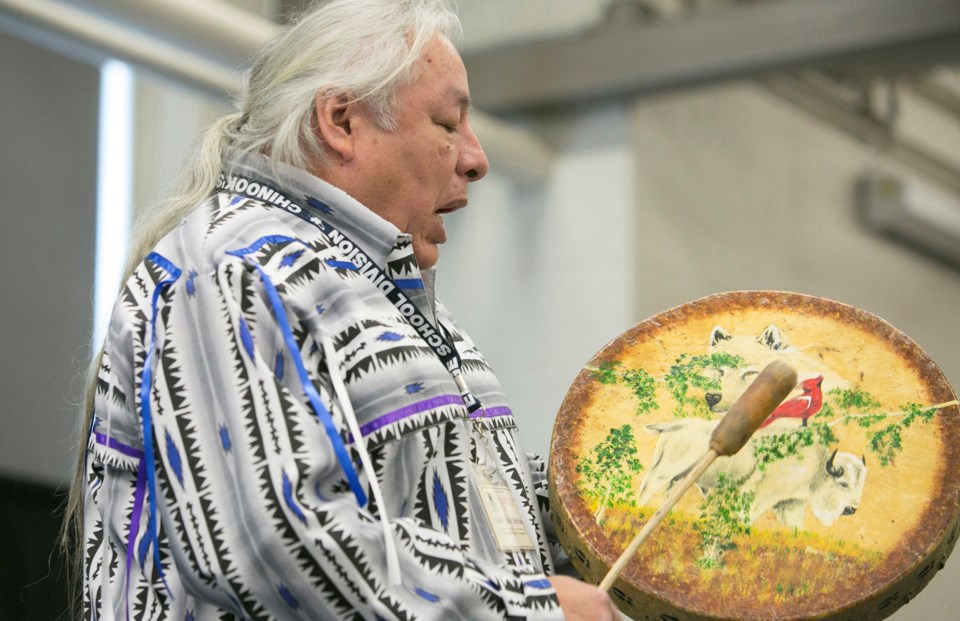OLDS — Elder John Sinclair is hoping more understanding can be achieved between indigenous people and non-indigenous people, now that the Black Lives Matter movement has spurred further awareness of racism.
“I’m sad about the situation that exists within Canada, within the indigenous peoples all across (the country),” Sinclair said during an interview. "There is systemic racism. There is systemic discrimination, all across the board in Canada. The systems are built in a non-welcoming way for indigenous people."
Sinclair is the chair of the Olds Indigenous Connections and National Indigenous Peoples Day planning committee.
He cited the number of indigenous people who end up in jail as an example of systemic racism.
Indigenous people account for roughly five per cent of the population in Canada, but now they make up more than 30 per cent of the federal inmate population, up from 25 per cent four years ago, according to a report issued earlier this year by Ivan Zinger, correctional investigator of Canada.
Sinclair has seen that first-hand.
“I’ve worked in a federal institution for almost 20 years and I worked with indigenous offenders, as well as non-indigenous, and I find that they’re already conditioned, right from where they’re born, you know – like if they live on the res or they come from a reservation, then they’re almost doomed, because they’re groomed to end up in jail,” he said.
“The jails are over-filling with indigenous offenders. So that speaks loud about how ill equipped indigenous people are to survive and thrive in today’s world. I’m not blaming anyone. I’m just saying that there’s a reason."
Sinclair added that all stems from the way indigenous people were treated when non-indigenous people began creating Canada.
“When the settlers arrived here, there was nothing but indigenous people living here – and there were millions of us," he said. "And now, we’re decimated and live on little plots of land they call reservations or reserves. At one time, we roamed freely here.
“So when I talk about systemic racism, that’s what I mean. They put laws in place to get what they wanted. They made laws so that we couldn’t thrive and we couldn’t survive and we couldn’t continue to live the way we did."
Sinclair wants to build greater understanding between indigenous and non-indigenous people – greater respect for each other’s culture and and a chance to create a more equal society for all.
“We’ve been climbing that mountain for a long time; 500 years and we’re still nowhere near the top. So we keep fighting every day to gain an equilibrium with the rest of Canada,” he said.
Sinclair has been doing his part by helping to organize Indigenous Week and Indigenous Day celebrations in Olds for the past few years.
This year, those National Indigenous Peoples Day celebrations were limited, due to COVID-19 pandemic protocols.
Instead of having many displays of indigenous talent and culture, people were invited to look at the indigenous art on display at Arts Commons.
Sinclair is hoping that next June, things will be back to normal – at least that there will be a vaccine for COVID-19 and organizers can go back to having celebrations in the week leading up to June 21 as well as on that day itself.
Sinclair sees great potential for greater understanding and appreciation between indigenous and non-indigenous people among today’s youth.
He noted he works with students in the Chinook’s Edge School Division.
“I talk with the kids in school, right from Grade 1 all the way up to Grade 12s. And they’re the best audience,” he said. “When you talk to non-indigenous adults, they already have their preconceived notions of indigenous people.
“They already have their filters in place. They have a grid that they look through, based on how they were raised and how they believe. So when I’m talking to them, they’ll either listen or they won’t. And when they do listen, they’re filtering it through their experience of life.”
However, Sinclair says progress is being made.
He noted that a friendship centre is being created in town and efforts are being made in Olds College and elsewhere to build bridges.
“I think that Olds is progressive and really open,” he said. “The town council really supports what we’re doing.”



